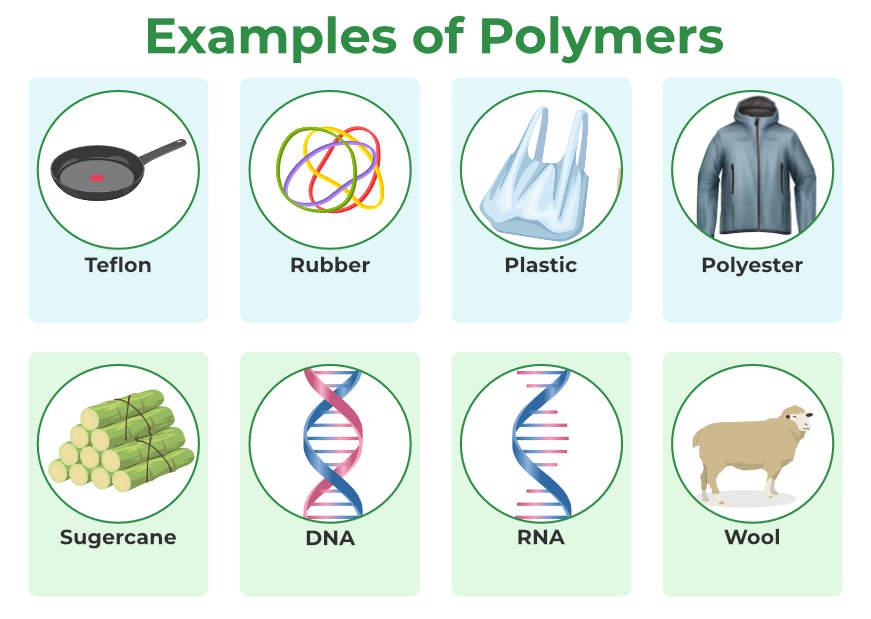Polymers in Building And Construction: Stronger, Lighter, and Much More Sturdy
Polymers in Building And Construction: Stronger, Lighter, and Much More Sturdy
Blog Article
Checking Out the Varied Applications and Advantages of Polymers in Different Industries
Polymers, with their diverse series of homes and performances, have actually become indispensable in different sectors, each reaping special take advantage of their application. Polymers. From boosting safety and security and efficiency in the automotive industry to changing medical devices in the medical care sector, polymers play an essential function. Their environment-friendly nature is changing the landscape of sustainability methods. As we delve into the depths of polymers in electronic devices, we reveal cutting-edge innovations, while their architectural stability transforms the world of building and construction and facilities. The prevalent impact of polymers across sectors is a testimony to their adaptability and versatility, shaping the future of many markets.
Automotive Market Applications
Polymers play an essential duty in boosting the efficiency and toughness of different elements within the vehicle market. These versatile materials are extensively used in the production of various parts, ranging from indoor parts to under-the-hood applications. One popular use polymers in the automobile industry is in the manufacturing of lightweight elements. By changing conventional metal parts with polymer-based alternatives, vehicles can accomplish enhanced gas effectiveness without compromising on strength or safety.

Medical Care Industry Advantages
In different healthcare applications, the advantages of using polymers are extensively acknowledged for their varied range of valuable properties. Polymers play a vital duty in the health care industry because of their convenience, biocompatibility, and cost-effectiveness. One of the primary advantages of polymers in health care is their capacity to be customized to details requirements, such as adaptability, resilience, and biodegradability, making them suitable for a vast array of medical applications.
Polymer-based materials are thoroughly made use of in medical devices, such as catheters, implants, prosthetics, and medication distribution systems, as a result of their biocompatibility and capacity to simulate natural tissues. These materials can decrease the danger of allergies or beings rejected, improving patient safety and security and end results. In addition, polymers are lightweight, making them ideal for wearable medical tools and making certain patient convenience.
Furthermore, polymers allow the development of ingenious therapy techniques, such as hydrogels for cells engineering and nanocomposites for targeted medication delivery. Their convenience of handling and sterilization makes them important for keeping high standards of health in healthcare settings. Overall, the diverse advantages of polymers contribute considerably to innovations in clinical technology and patient treatment.
Environmental Benefits of Polymers

Additionally, polymers can add to energy savings because of their lightweight nature. In markets such as transportation, lightweight polymer materials can help in reducing fuel intake and greenhouse gas emissions. In addition, polymers can allow the advancement of energy-efficient products such as insulation products that boost power preservation in buildings.
Additionally, polymers play a vital role in reducing water air pollution. For example, the usage of polymer-based filtering systems can successfully remove pollutants and contaminants from wastewater, safeguarding water resources and communities. On the whole, the environmental advantages of polymers make them valuable possessions in advertising sustainability and environment-friendly techniques throughout various markets.
Polymers in Electronic Devices and Technology
Taking into consideration the enhancing demand for cutting-edge and lasting solutions in modern-day sectors, the integration of sophisticated polymer technologies in the world of electronic devices and technology has actually emerged as a critical strategy for driving effectiveness and performance. Polymers have transformed the electronics market by making it possible for the production of lighter, much more versatile, and resilient electronic devices. From smartphones to clinical devices, polymers play a crucial role in boosting item layout and performance.
One substantial advantage of polymers in electronic devices is their protecting properties, which aid shield fragile digital parts from ecological elements and electric interference. In addition, polymers are essential in the advancement of flexible displays, wearable innovation, and printed electronics, offering countless opportunities for developing wise and interconnected devices.
In addition, using polymers in digital product packaging has led to advancements in miniaturization and thermal administration, improving the general performance and integrity of digital systems. As modern technology proceeds to advance, the adaptability and flexibility of polymers will certainly drive additionally technology in the electronics industry, forming the future of innovation.
Function of Polymers in Building and Facilities
The integration go to website of advanced polymer products in building and construction and facilities jobs has revolutionized the means frameworks are made and integrated in modern times. Polymers supply many benefits in the building market due to go to my blog their versatility, toughness, and cost-effectiveness. One essential duty of polymers in building is their usage in finishes and sealers, providing protection versus environmental factors such as moisture, UV radiation, and corrosion. Additionally, polymers are utilized in the production of light-weight and high-strength composite materials, enhancing the structural honesty of structures while minimizing overall weight.
Additionally, polymers play a vital duty in lasting building and construction techniques by allowing the growth of energy-efficient structures. Shielding materials made from polymers assist manage indoor temperature levels, decreasing the requirement for home heating and cooling down systems and inevitably reducing power usage. Moreover, making use of polymer-based composites in framework projects such as bridges and roads boosts their long life and reduces upkeep prices. Generally, the incorporation of polymers in building and infrastructure displays their significant effect on contemporary engineering techniques.
Conclusion
In final thought, polymers play an essential duty in various industries such as automotive, medical care, ecological, electronic devices, and building and construction. From improving fuel performance in lorries to enhancing medical devices, polymers use many advantages.
Report this page